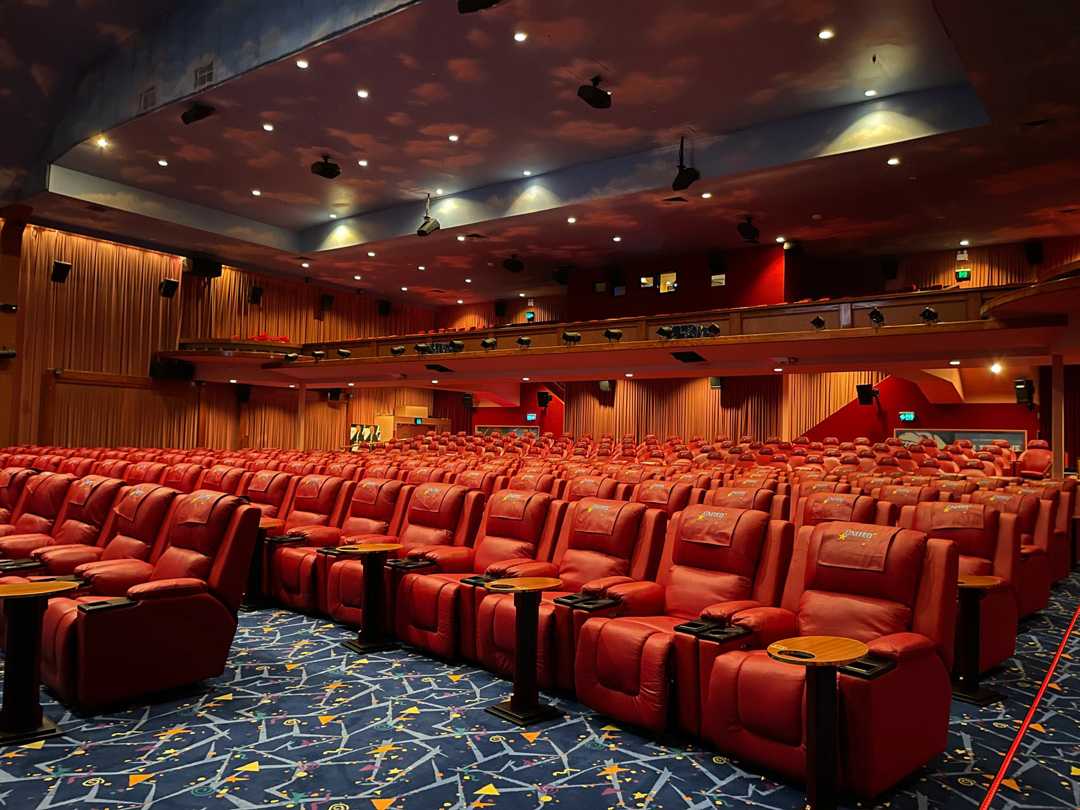Sydney cinema complex selects JBL and Crown
- Details

Located just north of Sydney in Warriewood, United Cinemas is a seven-screen multiplex cinema that offers a premium movie-watching experience. In order to provide an immersive cinematic experience for movie-goers, United Cinemas required audio systems capable of delivering clear, intelligible sound and balanced coverage in every seat of its main theatre space, the Grand Theatre. To achieve this, the facility acquired a selection of JBL Professional and Crown cinema audio solutions.
“We wanted to enhance the listening experience of the 650-plus capacity Grand Cinema theatre,” comments Roy Mustaca, chairman at United Cinemas. “We selected JBL and Crown solutions for their simple-yet-effective configuration and routing capabilities. Crown’s built-in speaker presets played a significant role in ensuring proper frequency response, crossover points and limiter settings.”
The installation team deployed JBL 5732 three-way speakers behind the screen for maximum output and minimum distortion in the main left, left-centre, centre, right-centre and right channels. JBL 9310 and 9300 surround speakers, AM5215 front ceiling surround speakers and AM7215 loudspeakers were chosen for the wide left and right surround channels.
Additionally, the team installed JBL 4642 A and ASB6125 subwoofers to deliver low frequencies in the stage and surround LFE channels. The entire system is powered and routed by Crown DriveCore Series networked amplifiers to create an immersive listening environment for standard 7.1 channel and Dolby Atmos soundtracks.
“Our technical team worked closely with Harman application engineers to design a custom JBL audio solution that successfully delivers crystal-clear sound quality and balanced coverage,” adds Sam Mustaca, CEO, United Cinemas. “We are delighted with the remarkable job and would like to extend our gratitude to everyone involved in the project. Continuing our partnership with Harman, we plan to convert the Grand Theatre into a live performance venue in the near future, using BSS signal processors.”















